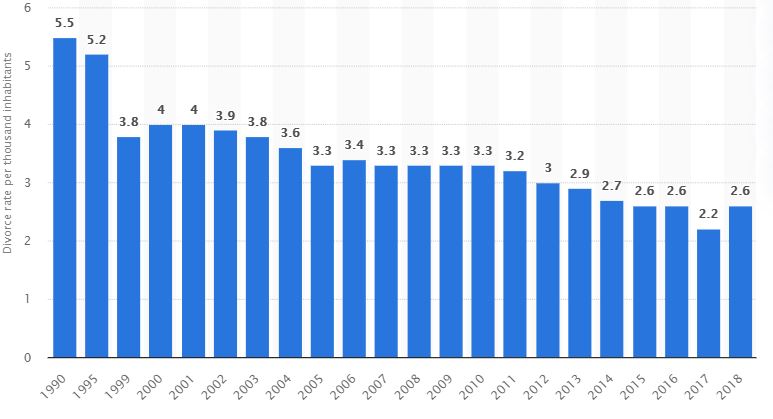 Divorce can be a tough process, but did you know that you might be able to bring certain tort claims alongside your divorce suit in Texas? The Texas Family Code and common law provide a range of tort claims that can address various wrongful acts. Here are some examples of torts that can be brought in a divorce case, along with hypothetical scenarios to help illustrate how they might come into play. Invasion of Privacy Imagine Jane discovers that her husband, John, has been secretly recording her private conversations without her consent. This could be considered an invasion of privacy. In Texas, this tort can be brought forward in a divorce case if one spouse's privacy is violated. Physical Abuse Let's say Sarah files for divorce because her husband, Mike, has been physically abusive. Physical beatings and abuse are serious issues, and victims can seek justice through a tort claim in their divorce case. This not only addresses the abuse but also helps protect the victim's rights and well-being. Transmission of a Venereal Disease Consider a situation where Lisa learns she contracted a sexually transmitted disease from her husband, Tom, who was unfaithful during their marriage. Lisa can bring a tort claim for the transmission of a venereal disease as part of her divorce proceedings. Fraud on the Community/Waste Imagine Mark discovers that his wife, Emily, has been secretly spending large sums of their community money on personal luxuries, depleting their joint assets. This is considered fraud on the community or waste. Mark can seek reimbursement for the unjust depletion of their community estate through a tort claim. Interference with Child Custody Suppose David's wife, Laura, consistently prevents him from seeing their children, violating their custody arrangement. David can bring a tort claim for interference with child custody or possession, seeking legal recourse to enforce his parental rights. Conversion of Separate Property Picture Alex finds out that his spouse, Jordan, has sold his separately owned car without his permission and kept the money. This is conversion of separate property. Alex can bring a tort claim to recover the value of his sold property. Intentional Infliction of Emotional DistressIf Maria's husband, Sam, engages in extreme and outrageous conduct that causes her severe emotional distress—like threatening her life or publicly humiliating her—Maria can bring a tort claim for intentional infliction of emotional distress. Remedies for Fraud on the Community Fraud on the community isn’t an independent tort but is addressed within the Texas Family Code. When one spouse fraudulently depletes the community estate, the court can calculate the amount lost and reconstitute the estate. Remedies may include a disproportionate share of the remaining community property or a money judgment. Pursuing Separate Tort Claims When seeking separate tort claims, it’s essential to avoid double recovery. For example, if you bring a tort claim for intentional infliction of emotional distress, you might receive a disproportionate share of the community estate or a monetary award, but not both for the same wrongful act. Additionally, egregious behavior might warrant punitive damages, so consider this when deciding on the type of claim to pursue. The Impact of Res Judicata Res judicata means you can’t relitigate claims that were or should have been raised in the initial lawsuit. If you allege cruel treatment to seek a larger share of the estate, make sure to include all related tort claims. Failure to do so may prevent you from bringing those claims later. Navigating the intersection of torts and divorce can be complex. Whether it's invasion of privacy, physical abuse, fraud on the community, or other wrongful acts, understanding your rights and potential claims is crucial. Always consult with a knowledgeable attorney to explore your options and ensure you receive the justice you deserve.
0 Comments
 In Texas, a spouse's bonus can significantly impact the financial discussions during a divorce. These bonuses may be awarded by an employer to recognize an employee-spouse's dedication and hard work, and can range from annual bonuses to stock options and performance-based awards. The critical question often arises in divorce proceedings: Is the bonus considered marital property to be divided, or is it the separate property of the spouse who earned it? Understanding Marital vs. Separate Property in Texas Under Texas law, marital property includes all assets and debts accumulated during the marriage, except for gifts, inheritances, and certain types of personal injury claims. Separate property refers to assets or debts one spouse brought into the marriage or acquired after the marriage ends, with some exceptions. This distinction is crucial when determining how bonuses are treated in a divorce settlement. How Courts Evaluate Bonuses The classification of a bonus—whether it's marital or separate property—depends significantly on the specifics of the bonus arrangement. There's no standard bonus structure; they can be contingent on various factors like sales metrics, company profitability, or specific achievements like a successful public offering or acquisition. In cases where a bonus is under consideration, Texas courts need to evaluate several factors:
Hypothetical Bonus Scenarios Consider a local executive who expects an annual bonus based on performance reviews. If a divorce judgment is entered in September, and the bonus is paid annually, a court might decide that a substantial part of the bonus is marital property. The exact split will depend on the couple's marital duration within the bonus year. For instance, if the couple was married for nine of the twelve months, 75% of the bonus might be deemed marital property, with the remaining 25% as separate property. However, Texas family courts are guided by principles of equity, meaning that the division isn't always a simple split. Courts might consider additional factors like each spouse's economic needs, contributions to the marriage, and any misconduct affecting the marital estate. The Importance of Legal Representation Given the complexities involved in classifying and dividing bonuses in divorce, having an experienced family law attorney is crucial. An attorney can help navigate the intricate details of bonus agreements and advocate for a fair division of these assets based on the unique circumstances of your case. With the right legal guidance, parties can ensure that their financial interests are protected during the division of assets in a Texas divorce.  In the intricate landscape of divorce, few assets bear as much emotional and financial weight as the family residence. For many clients, the family home is not just a building; it’s a tapestry of memories, emotions, and financial investments. It's the center of family life, a symbol of stability, and often, the largest asset in marital property. Recognizing and addressing the multifaceted nature of this asset is crucial in any divorce settlement. The Threefold Nature of Residential Issues in Divorce When dissecting the complexities of the family residence, we can identify three core areas of concern: use, disposition, and tax implications. 1. Use Issues: These concerns revolve around the interim use of the home from separation to settlement. They encompass who lives in the house, who manages it, debt responsibilities, access to belongings, and sometimes, child-related considerations. 2. Disposition Issues: This area focuses on the ultimate fate of the residence in the divorce settlement. Typically, outcomes include selling the property to a third party, one spouse retaining it, or both parties agreeing to co-own it for a period, often until a child reaches a milestone like high school graduation. 3. Tax Issues: Tax implications straddle both use and disposition. They involve potential deductions for mortgage interest and property taxes, which affect temporary support calculations. When it comes to selling or transferring the property, understanding capital gains or losses is critical for an informed decision-making process. Strategic Benefits of Categorization Approaching the family residence topic by categorizing these aspects serves multiple strategic purposes:
In conclusion, addressing the family residence in divorce requires a nuanced understanding of its emotional significance, financial value, and the legal implications. By breaking down the issues into manageable categories and reframing the conversation, mediators and attorneys can guide clients towards more effective and satisfying resolutions.  Whether or not you should move out before filing for divorce depends on your individual situation. There are pros and cons to each option and the right decision varies greatly depending on you particular situation. For example, if you are seeking custody of your children, leaving the home without them will put you in a significant disadvantage when the actual custody proceedings begin. However, If you're experiencing conflict or abuse in the home, moving out may be necessary for your safety and wellbeing. In such cases, you may want to seek a protective order from the court to ensure your safety. On the other hand again, moving out before filing for divorce could impact your legal rights and obligations related to property division, and spousal support. If you move out and your spouse stays in the marital home for longer than a year, it could be interpreted as abandonment, which could weaken your legal position in the divorce proceedings. It's best to consult with a qualified family law attorney to understand the implications of moving out before filing for divorce in your jurisdiction. If you are finalizing your divorce soon, you'll want to pay attention! HB 3772 has passed and has changed the law on final decrees of divorce in Texas.
Starting September 1, 2021 there is an additional requirement that must be included in your final decree. All final decrees in the State of Texas must now include the date of marriage. Texas Family Code 6.712 states: (a) In a suit for dissolution of a marriage in which the court grants a divorce, the court shall state the date of the marriage in the decree of divorce. However, this requirement is not required in the case of divorces of informal marriages ("common law marriages"). The new law provides: (b) this section does not apply to a suit for dissolution of a marriage described by section 2.401(a)(2). If you are experiencing a League City Divorce or need to consult with a League City attorney for any other family law related matter, feel free to reach out to us. -Sean  For the first time since December 20, fewer than 10,000 Texans are hospitalized with COVID-19 according to the Texas Tribune. However, the current number of 9,401 Texans hospitalized, and the emergence in Texas of new, highly contagious strains signals the grim reality that it will long time before things will return to normal. As the COVID crisis lingers, it's effect on people's lives, especially those trying to manage children between two homes, grows increasingly burdensome. For those who have family law disputes, the challenges are increasing as the COVID crisis lingers into its second year. Here are the top three problems that our firm has experienced with our clients: 1. Job Loss Affecting Child Support Payments One of the most obvious and direct impacts to daily life due to the COVID crisis is how it has hurt family income. As more small businesses flounder and shut down, job losses in Texas are climbing steadily. Separated and divorced parents are often already struggling to make ends meet, but as the COVID crisis endures, they will see savings dry up and soon existing child support payments may slow or stop. Courts in the Houston and Galveston areas remain sensitive to parents in this situation but are proceeding with child support enforcement case as normal. They are issuing contempt orders as readily as before, and it is incumbent on the parent ordered to pay support to approach the Court early about having their child support obligation reduced if they are experiencing financial difficulty due to COVID related job loss or reduction in hours. Failure by the payer to seek to have the previous order modified- even if temporarily - may result in contempt actions being brought by either the obligee or the Texas Attorney General. And despite the understanding the Courts may grant the obligor in these extraordinary times, it should be noted that the Courts have not abandoned the expectation that parents must supply evidence of their particular financial challenges or economic hardships. It's recommended that parents seek legal counsel to assist them. Many lawyers, such as our firm, offer affordable limited scope services to help in this situation. 2. Changes in Living Conditions For many Texas families, the day to day physical living conditions and circumstances have been negatively impacted by the lingering COVID crisis. In a recent divorce case, the father sought the immediate sale of the marital home where the mother and the two children were still living. The father, an optometrist, claimed that the COVID crisis had reduced his income by half, and as the sole wage earner, he could no longer afford to pay the mortgage and costs for the couple's large home. The mother counter-argued that the father chose to keep his practice closed longer than necessary and that COVID restrictions had been lifted. The Court reviewed the larger financial situation of the couple and ordered the immediate sale of the home and temporary support payments for the mother for her to rent a smaller house. The Court declared that "COVID-19 has at least temporarily ruined the financial prospects of both of these parties. And neither of them is to blame." 3. In-person vs. Online Learning Many if not most Texas schools offer two options for children to attend school- traditional attendance at the school ("brick and mortar") or virtual learning using software and the internet ("online"). However, when parents do not agree on what is best for the children- as often happens during and after divorces- then disputes arise that often wind up in court. In a different recent divorce case, a temporary order directed the mother would be the temporary primary caregiver of the children and the father would have weekend visitations through the divorce proceedings. It also directed that the children should be taught virtually. The mother, although not working herself and being supported financially by the husband, was not satisfied with the temporary order because she wanted the kids in school. After the temporary hearing, the mother shut off her internet service- which she calculated she could do because it was not specifically prohibited by the Court. Without internet access the kids could not attend school virtually. The father was soon alerted to the situation and took the mother back to court. At the emergency hearing the mother pressed to explain her actions and their impact on the children's education. The mother "mostly deflec[ed]" and stated the children's educational needs were being met otherwise. The Court ultimately ordered the mother to immediately provide internet and all necessary equipment for the children to attend school virtually. The Court also admonished the mother that if she again attempted to thwart the order, then primary care would be given to the father. In Summary The COVID crisis has been with us for over a year and it seems we have a long way to go before things return to normal. The long length of this crisis is having trickle-down effects on separated and divorced families in many ways. These result is an increase in conflicts where often the only resolution is to seek relief from the courts with the help of an experienced family law attorney. If you have experienced any of these issues, or you if you think there are other issues that are more widely experienced that the ones we have listed, we invite your comments below. There is a lot of speculation among experts about whether divorce rates will increase after the pandemic is over and once the courts open up and become fully functional. Many couples choose to avoid dealing with their marriage problems but with recent social distancing, are being forced to interact and engage with each other in different ways now that they are stuck at home together. They're having to engage each other without the prior distractions of work away from home and socializing away from home. For good or ill, couples are having to deal with each other now more than ever. If there has been a lack of meaningful time in marriage relationships, there are fewer and fewer excuses to avoid your partner. In some cases this may be just the right medicine needed for a troubled marriage. In others cases, the pandemic may be the straw that breaks the camel's back. In many cases stay-at-home orders are further destabilizing at-risk marriages. COVID Divorces Are Already Trending UP We are all dealing with much higher stress levels due to the strains of financial, physical, and emotional impacts of the pandemic. There is a growing body of evidence to show that spending more time together in close quarters, can increase the chance of divorce. In other countries who reacted to the first wave of COVID-19 with weeks of strict lockdowns, a spike of record high numbers of divorce filings were the result. And although it is debated whether we are now in a second wave of COVID-19 or if we are only seeing one prolonged wave, there is no doubt that domestic situations that are already at risk of divorce, are only going to get worse as the lockdown continues. Here in League City, Texas during the pandemic, we are seeing more people asking for information about getting a Galveston county divorce or a Harris county divorce. But the question for each couple will be whether they have reached an emotional point of no-return. Your Emotional Bank Account Some therapists refer to a couple's relationship like a bank account in which emotional deposits are made and emotional withdrawals are taken. If the couple are depositing loving thoughts, then their emotional bank account is high and they have good feelings towards each other and a healthy marriage. However if they are not meeting each other's needs, or are making bad relationship choices, then with each argument or disappointment, they are making an emotional withdrawal from the bank account. Many people are facing literal financial ruin as the pandemic eats away at their savings and resources. For the majority of these people, they were already living paycheck-to-paycheck with very little savings for emergency situations. Now that the pandemic has stopped or slowed their paycheck, they are experiencing financial ruin. This is very similar to the effect of the pandemic on their marriage relationships. The Pandemic Is Forcing the Issue Even during the best of times, many couples live in quiet misery in loveless marriages. They do so because of social or financial pressures they feel they will have to endure if they get a divorce. They live joyless lives in a broken marriage with little or no savings in their emotional bank accounts. Many are simply biding their time until some event happens when they think the situation will be right, such as when the children leave the home, or when they retire. But they have been able to endure this unhappy existence up to now due to distancing themselves from the other spouse and filling their time with distractions such as going off to work or social interactions with other people. This so far has relieved the tensions of interacting with the other spouse. Now however under the quarantine, the tension is constant and unrelenting. They cannot get away, and there are few distractions. You Have Choices If you are in a marriage relationship where the emotional bank account is running very low, then you must decide if the marriage is worth the investment it will take to revive it. Then you must convince your spouse to make the same investment. If you both want your relationship to remain emotionally solvent, you must take immediate and aggressive action. Just like a couple in financial trouble, you should seek the help of a professional advisor. A counselor (marriage, family, and/or individual) should be consulted and you should follow their advice. And you must make daily deposits into that emotional bank account. However, some accounts are hopelessly overdrawn. When the emotional debts far exceed any hope to getting out of it , then you need admit that your best option for the future is to make a clean break and a fresh start. Financial debt relief is called "bankruptcy" but emotional debt relief is called "divorce". Many couples have reached this stage whether they will acknowledge it or not. If that is the case, then inevitably one or the other spouse will be seeking divorce now or in the future. For those people, the pandemic alone is probably not the reason for divorce, but it has exasperated the situation or at the very least created an environment where avoiding the problem is not longer bearable . Most people thinking about divorce during this outbreak were already severely overdrawn on their emotional accounts before the pandemic. They are now finding themselves at a point where no amount of deposits will make a difference. If you have reached this point and are now simply bidding your time until the pandemic ends before seeking a legal divorce, then you should think again. If you feel that you are forced to endure the current situation, then you are probably wrong. There is no telling how long the pandemic will continue and there are likely to be viable alternatives you have not thought of. If the situation has become intolerable you should seek advice from a professional for your League City divorce to help you generate ideas and options- even while the pandemic is going on. Nobody gets married with the intention of getting a divorce, but for about half of us, divorce is the ultimate end to a marriage. The latest data show that in Texas there are 2.6 divorces per thousand people- this is down significantly from the peak of 5.5 in 1990, but still represents approximately 75,000 divorces! And this rate has been steady for several years. Everyone knows that everything is bigger in Texas. This apparently includes divorces. Why is divorce so prevalent? Is it because rash decisions are made every day and people tend to make bad choices when they enter into something without thinking it through first? Perhaps. I've seen plenty of that in my career. But if that is true, it still brings up the old "chicken or the egg" type of question. Is divorce so prevalent because people make a rash decisions and marry incompatible partners, or is it because they make a rash decision to divorce as means to solve their general dissatisfaction with their lives?
The answer is of course, different for everyone. But it is true that many people mistake the true source of their unhappiness. They may assume a marriage in distress is the cause of their unhappiness, when in fact, it may be that a troubled marriage is just a symptom of distress that originates from other problems such as financial mismanagement, poor communication skills or past psychological trauma. Everyone should take a careful look before they leap into divorce because once started, a divorce may be hard to reign back in. There is no doubt that staying married can be painful, but divorce is pretty painful too. So think carefully, and get all the information you can before you decide to divorce so that you know you are going down the path.  A big decision needs to be made early on in a divorce case- who will take care of the kids? Separated or newly divorced parents have to make tough decisions about child care in the best of times, but with the spread of the coronavirus, those choices are harder than ever. As our Texas Governor moves forward with re-opening the economy, more parents are returning to work. This has made child care decisions more urgent -and desperate-for millions of Texans. Child care options are decreasing Most single parents with minor children need to work during the day. In the pre-pandemic days, one common option for many was to have grandparents watch the children while the primary care parent works. However, not every parent is blessed with this as an option. And now, with the spread of the Covid-19 virus and it's high death rate among the elderly, many people who did have this option are now not willing to risk the lives of their own parents by exposing them to grandchildren who often do not display symptoms of Covid-19 and can infect their unwitting grandparents with the virus. The usual option, if relatives are not available, is to rely on private daycare. But many parents are worried that they will be putting their children at risk by taking them to a daycare center during a pandemic. This fear is spurred by news that Texas has just experienced one of it's most infectious and deadly weeks for Covid-19. State data shows an increase in coronavirus cases stemming from both large gatherings and child care centers. The state reported 576 positive cases of the coronavirus — 382 staff members and 194 children — in child care facilities as of this week. That’s up from 59 cases in mid-May. Are Daycare Facilities Safe? Little Guidance from the Government. Of those facilities that remain open, even at limited capacity, the State's response to the fears of contaminating kids in daycare has been muddled, to say the least. Just two weeks ago, the government surrendered all existing regulation of safety measures at state-licensed child care centers. As of mid-June they were no longer required to comply with a list of safety precautions that had been in effect since mid-April. That meant centers could decide for themselves if they wanted to check staff temperatures, require parents to drop off their children outside or stop serving family-style meals, according to a previous notice from the state Health and Human Services Commission. Then, in an apparent reversal this week, Gov. Greg Abbott directed a state health agency to enact new safety standards for child care centers during the coronavirus. However those new standards have not yet been published. To make matters less clear, individual county and municipal authorities in Texas have been sending mixed messages to citizens about how their local government plans to respond to the recent deadly spike in infections. In Harris County, which includes the City of Houston, Judge Lina Hidalgo has announced plans to mandate masks and return to the stay-at-home conditions imposed this Spring. Meanwhile in neighboring Galveston County, which includes more suburban and semi-rural /industrial areas, Judge Mark Henry has defiantly announced that he won't issue any new government restrictions and said people must rely on their own personal responsibility to stay free from infection. Ultimately, Parents Must Find Daycare Options and Judge Facility Safety On Their Own Experts say that daycare is a key piece to reopening the U.S. economy. If a single parent must go back to work and has no other child care options, then choosing among the remaining daycare facilities that remain open in the area may be the only choice. But without clear government guidance, selecting the safest daycare facility for your child is a daunting challenge. That is why we are offering a checklist of the most important, researched questions to ask a daycare facility before you enroll your child. The checklist is based on expert recommendations and can help you determine if a child care, daycare or daycamp facility is coronavirus ready. No facility can guarantee your child will be 100% safe from infection, but download this free checklist and bring it with you when you visit the facility or ask questions from it when on the phone. Researched from the CDC and other experts, this question checklist will help you pick the safest daycare facility. The Palmer Law Firm is offering this checklist as a free public service. To download the Daycare Safety Checklist. Please click HERE.
 Alright then. The first thing to understand is that the court begins with the idea that your property should be divided "fairly and equitably". (Keep in mind this DOES NOT necessarily mean 50/50). So if you want more than fair, it becomes your job to prove to the court that you deserve more than fair. You likely need to tell the court in your first paperwork (called a "Petition") that you are claiming one of the 28 different factors that the court can consider in deciding whether to grant a disproportionate division of what you earned during the marriage (a.k.a. "community property"). You will have to plead that one of these things changed the normal presumption of equal division to your favor. You need justify why you should get the lion's share of the property by claiming one or more of the following: 1. Husband was at fault in the breakup of the marriage; 2. You would have received benefits from the continuation of the marriage; 3. He earns much more than you; 4. Your health is worse than his; 5. You got the children so you should get more property to help pay for them; 6. Your children's needs are great; 7. Your education is less than his and/or your prospects for the future are lower; 8. You are less employable than him; 9. There is a lot of marriage debt; 10. The division of property will put more tax burden on you; 11. The differences in you ages is great; 12. The earning power, business opportunities and abilities favor your husband; 13. You need future support; 14. The kind of property to be divided means it would be fair for you to get more; 15. Your husband wasted your community property; 16. You husband doesn't deserve any credit for temporary support he paid you; 17. Your husband used community funds to pay for out of state property; 18. Your husband decreased your community property because he gave unreasonably valuable gifts during the marriage; 19. You can show that your efforts (time, talent, labor) unduly increased your husband's separate property (which the court has no power to divide) and you should be compensated; 20. Your husband gave so much of your community property away to his separate estate or to the children that it was unreasonable and should be compensated; 21. The community estate should be compensated; 22. Your husband is expecting a large inheritance; 23. You should have more money to pay for attorney's fees; 24. You used up your separate property to create community property; 25. The size and nature of your separate property is much less than his; 26. You disproportionately created community property by your own efforts, whereas he did not; 27. He committed fraud (lied) that put you in a worse financial position than you otherwise would be in; 28. His actions amounted to fraud, even if he didn't technically lied that put you in a worse financial position than you otherwise would be in. These are called to Murff Factors after the original case: Murff v. Murff, 615 S.W.2d696,698 (Tex.1981). It should be noted that requested a disproportionate share of the community property will eventually require you to prove your allegations. Claiming something is easy. Proving it is another matter. If you want a disproportionate property division, you probably will need an experienced lawyer to help you with this. |
Need more information about this or other family law topics in Texas?
Click the button below to book a FREE ATTORNEY CONSULTATION (832) 819-3529
Attorney Sean Y. Palmer has over 20 years of legal experience as a Texas Attorney and over 25 years as a Qualified Mediator in civil, family and CPS cases. Palmer practices exclusively in the area Family Law and handles Divorce, Child Custody, Child Support, Adoptions, and other Family Law Litigation cases. He represents clients throughout the greater Houston Galveston area, including: Clear Lake, NASA, Webster, Friendswood, Seabrook, League City, Galveston, Texas City, Dickinson, La Porte, La Marque, Clear Lake Shores, Bacliff, Kemah, Pasadena, Baytown, Deer Park, Harris County, and Galveston County, Texas.
Call (832) 819-3529 If you live in the Houston area and would like to consult with one of our attorneys, please leave your information below.Archives
July 2024
Categories
All
|
The Palmer Law Firmwww.thepalmerlawfirm.com
(c) 2024 Sean Y. Palmer |
DISCLAIMER:
This website is for educational and informational purposes only and is not, nor is it intended to be, legal advice. Viewing of this website does not create an attorney-client relationship. All legal matters should be discussed with a licensed attorney before you take any action. You should consult with an attorney for advice for your individual situation. Sean Y. Palmer is the attorney responsible for the content of this site. DATA NOTIFICATION: Pursuant to the Health Insurance Portability and Accountability Act, and the Texas Medical Records Privacy Act of the Texas Health and Safety Code, consumers are noticed that their protected healthcare information may be transmitted electronically. |



 RSS Feed
RSS Feed